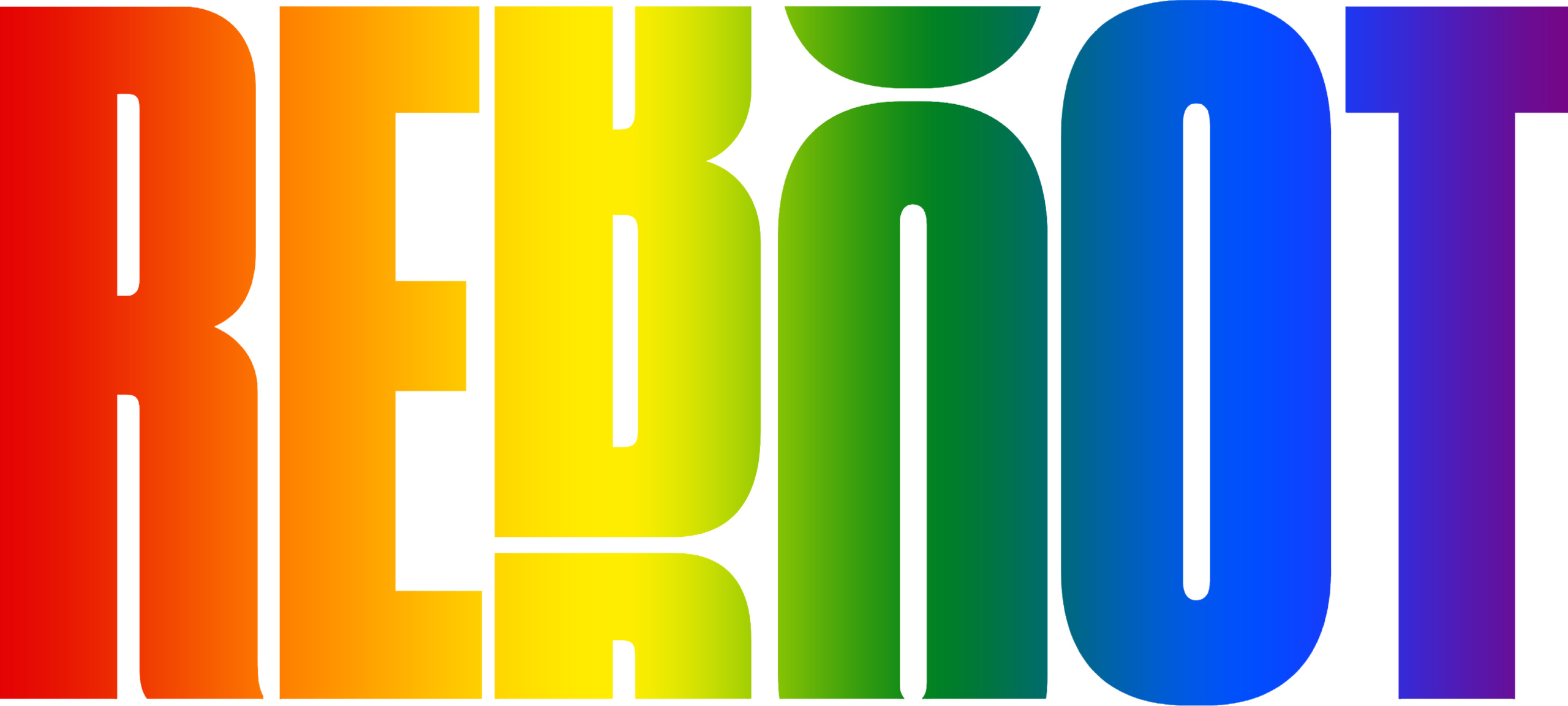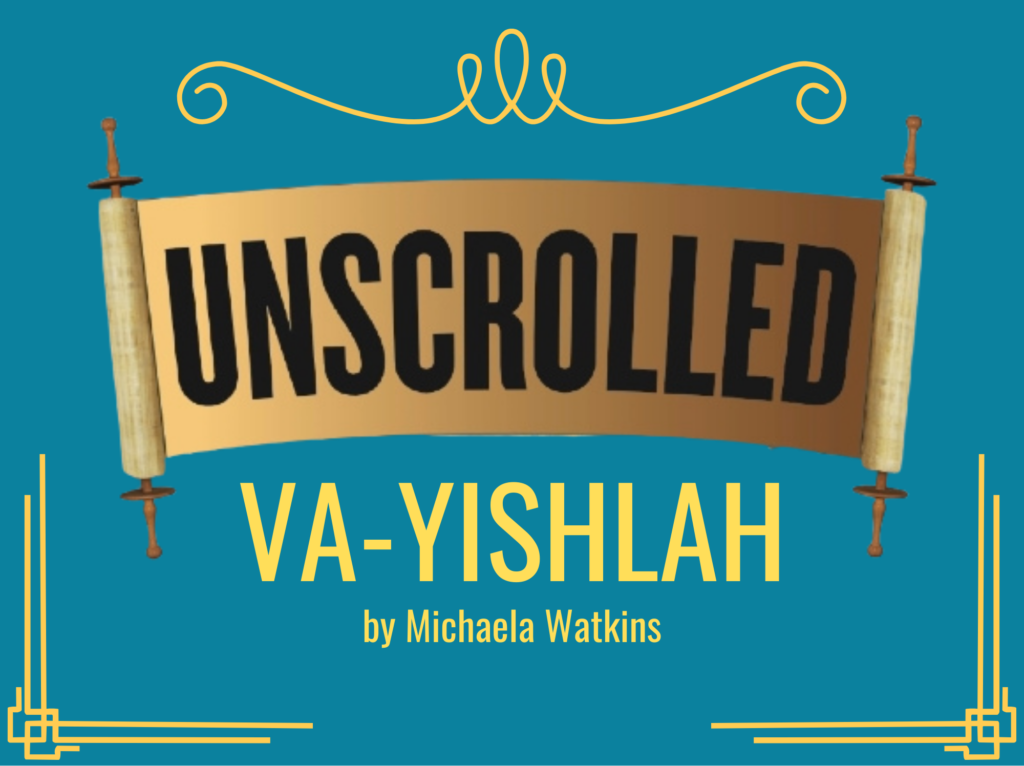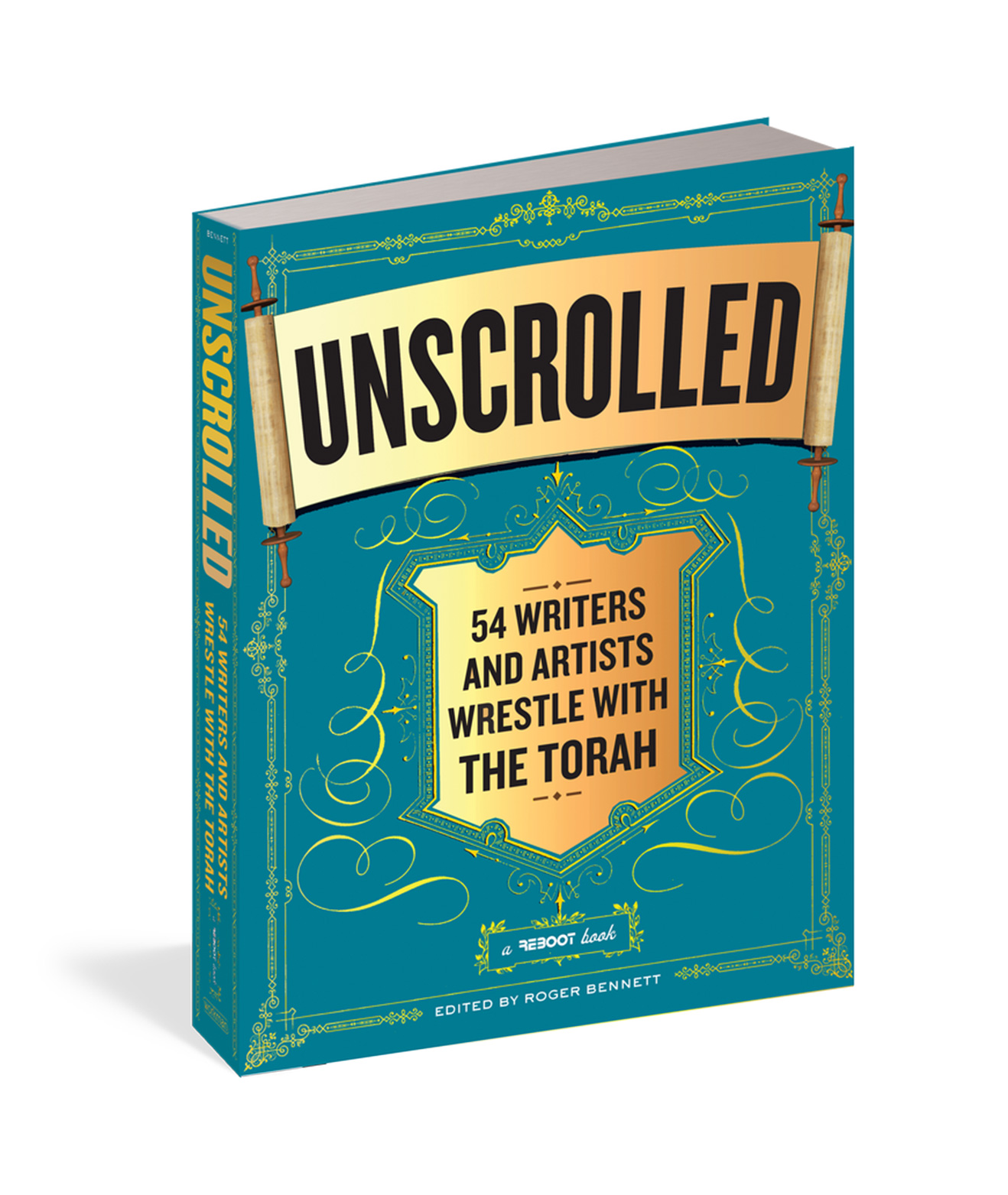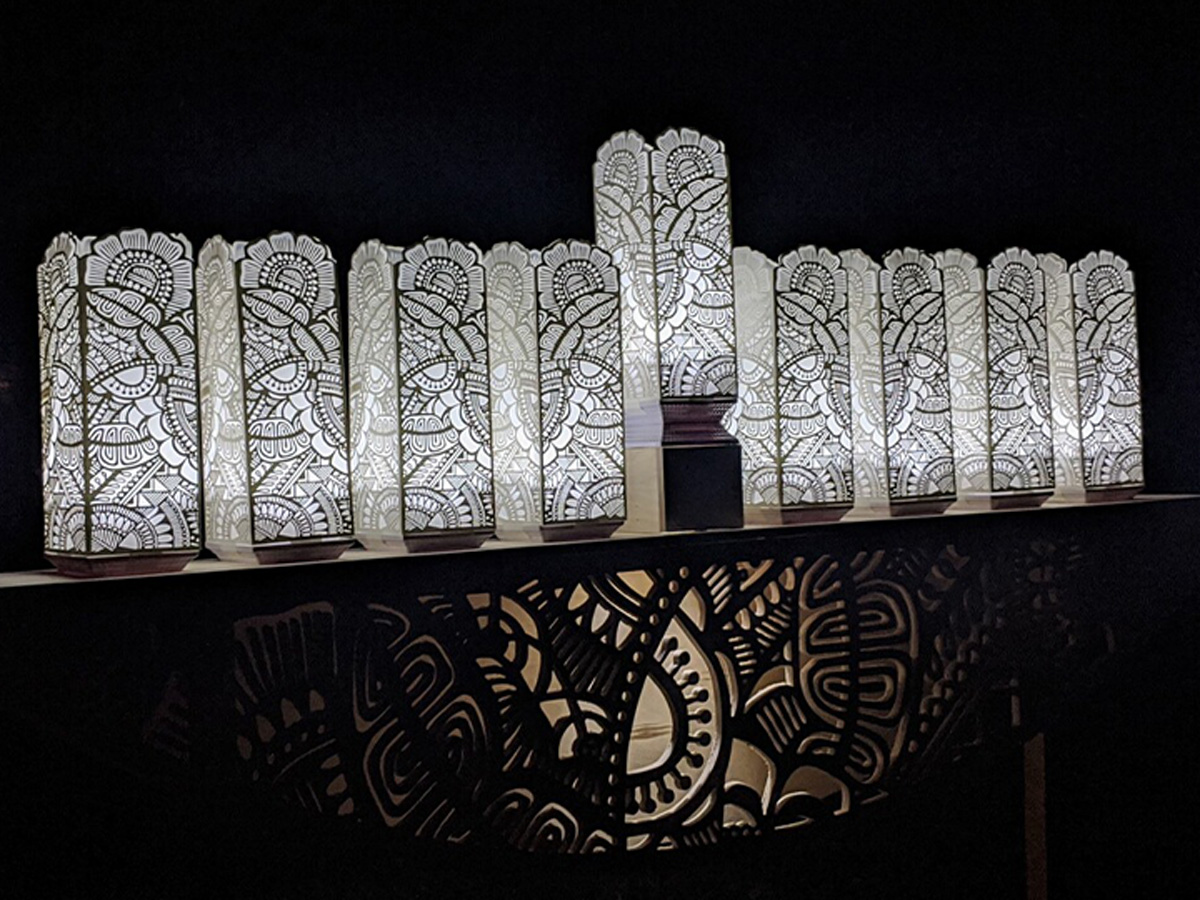Vayishlach: We Wrestle On
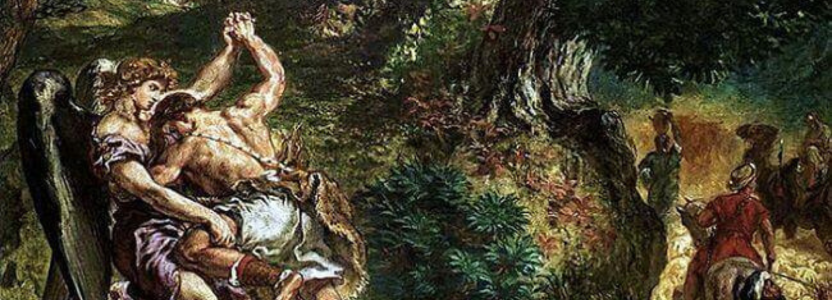
This has been modified from a Dvar Torah (“word of Torah,” i.e. sermon) written and delivered by Lauren Hoffman for the Torah portion of Vayishlach at DC Minyan, a lay-led, egalitarian community in Washington DC.
Shabbat shalom! If, back when I was asked to give a dvar torah today, I had counted off the weeks and spent even two minutes thinking about the plot of Vayishlach, I probably would have said no. But here I am, having forgotten about this commitment until yesterday, about to talk on eggshells through one of the most action-packed, polarizing, and violent parshiot (chapters) in the Torah. Before I proceed, imagine a giant trigger warning up here (waving arms).
These are the major events in Vayishlach: Jacob wrestling with the angel and getting renamed Israel, Jacob and Esau meeting for the first time in years and parting ways peacefully, Dinah getting kidnapped and raped by Shechem, Shimon and Levi retaliating by killing all of the men in his city and enslaving all of the women and children, Rachel dying in childbirth with Benjamin, Reuben maybe or maybe not raping his mother’s handmaiden Bilhah, and Isaac dying. It is chaos in the house of Jacob. It is struggle, it is narrowly avoided tribal warfare, it is violence against women, it is not avoided – and instead actively relished – tribal warfare, it is collective punishment, it is grief, and all of it happens in name-dropped locations that were – and still are – tensely disputed territory between neighbors who are afraid of, and expecting the worst from, one another.
The most neutral, PG-rated thing I can possibly say about Vayishlach is that it serves as a proof text that Torah has always been wholly up for interpretation, and that the environment and agenda of its interpreters have always and will always shape their readings, from the redactors to the Talmudic thinkers to medieval commentators to ourselves.
For example, according to the medieval French commentator Rashi… Dinah was asking for it. In the text, it says “ותצא דינה בת לאה,” that “Dinah the daughter of Leah went out” which Rashi interprets as a reference to chapters earlier when Leah “went out” to Jacob to, ahem, inspire him to have children together. Never mind earlier, Rashi points to Jacob “going out” as a sign of righteousness, or that Dinah was going out of her house of 11 brothers “לראות בבנות הארץ” – “To look at the daughters of the land” of Shechem, where they had just moved, and maybe make some female friends? Rashi reads immodesty and promiscuity into her one and only action verb, and blames the victim… I suppose as one would in 11th century France, right? Or maybe as a terrified father raising three daughters in the Dark Ages might, grasping to warn and protect them any way he could, within his limited sphere of influence.
But then, in Anita Diamant’s retelling in The Red Tent, in which Dinah is finally given a speaking part, Dinah fell in love with and colluded with Shechem to run away – she wanted to marry him as much as he wanted to marry her (I know, it’s confusing: it’s the guy but it’s also the place. This happens a lot in the Torah and everyone rolls with it).
I could keep going, of course: two of Dinah’s brothers, Shimon and Levi, slaughter literally all the men in Shechem, rescue their sister, and then have the rest of their brothers join them to pillage the city and enslave all of the surviving women and children because their one non-elected leader raped a girl and held her hostage. Generationally brilliant rabbis – the Rambam, Ramban, Rashi, Akeidas Yitzchak and the Gur Aryeh – engage in a heated debate across centuries and continents about how and whether that is justified, and if so, on what grounds. They wrestle with the text, twisting themselves into knots to fit this choice into their schema for the brothers, who they insist are righteous even if rash. Was it fine because the civilians were maybe also doing terrible things that perhaps violated Noahide law? Because they refused to hold their leaders to account and therefore maybe implicitly condoned their actions? Because victims of aggression have the right to counter-attack in anger, in humiliation, in attempted deterrence of future attacks? Was it not fine at all, because Jacob was upset about the violence after the fact? But he let it happen – so was he implicitly condoning it?
I am not going to keep going: we, like the Rabbis, can each interpret this scene on our own, informed by experiences in our own lifetimes and how we feel about those experiences. We have had a lot of practice.
What I’m finding especially striking right now is how many different interpretations of the events in this parsha I’ve come to, over years of reading it and hearing it referenced so often. It’s a really tough one – it’s morally ambiguous, unusually full of sympathetic villains and vengeful, imperfect heroes. One that demands some grappling with… which brings me to the last event ripe for all kinds of interpretation that I’ll mention today: the wrestling match.
We know the scene. Jacob is left alone just before his reunion with Esau – the Talmud says because he was conscientious about property earned with integrity (some dishware or something that he had forgotten and was going back for?). The Rashbam (another medieval French commentator writing about 100 years after Rashi, his grandfather) relates it to the story of Jonah and suggests that Jacob may actually have been trying to sneak away in fear, and this was him getting caught out. Regardless, a mystery man (but actually almost everyone buys into the idea that it’s an angel dispatched by God) assaults Jacob, dislocating his hip, and they wrestle all night. Jacob has him beat, but refuses to let him go without a blessing. The angel man asks for his name, and then says, “Your name is no longer Jacob, but Israel, “ כי שרית עם אלוקים ועם אנשים ותוכל”- “Because you have wrestled with God and man and have overcome.” To me, right now, that sounds like a blessing, sure, but also a rebrand, a prophecy, and a curse.
In 2016, Jonathan Safran Foer published Here I Am, a fictional novel about a Jewish family in Washington, D.C. navigating a divorce and their reactions to an existentially threatening war in Israel. I read it in 2017, I think, and thought it was moving and thought-provoking. I’m reading it again right now – this time it feels chilling and prophetic. In the book, the protagonist is named Jacob, and his son Max’s Bar Mitzvah parsha is Vayishlach. The dvar torah within the book is about Jacob demanding a blessing from the angel, and it’s one of my favorites of all time.
Max, written with improbable maturity for a 13-year-old, says from the bima, “Jacob wrestled with God for the blessing. He wrestled with Esau for the blessing. He wrestled with Isaac for the blessing, with Laban for the blessing, and in each case he eventually prevailed. He wrestled because he recognized that the blessings were worth the struggle. He knew that you only get to keep what you refuse to let go of… Israel, the historical Jewish homeland, literally means “wrestles God.” Wrestling is not only our condition, it is our identity, our name.”
I think – from years of being taught about and rereading this story – that we really gloss over the part where the angel said that Jacob wrestles with people. He’s a confrontational guy: he is willing to fight for what he wants, and to fight dirty, often doing some pretty sneaky and unsavory things to get his way. To be fair, he also seems to wrestle with himself, with his fears and his failures. He does not shy away from conflict – if anything, he seems to magnetically attract it. He wrestles.
And we, his descendents, keep wrestling. With God or God’s absence, with our fear and bewilderment, among ourselves and with others, in small ways and explosive ways, with these texts that we are raised to wrestle with year after year, that may be telling us to do one thing, be one way, or may be telling us to do something else entirely – the exact opposite, even: to learn from mistakes and do better. We wrestle, twisting ourselves into knots to fit any of what we read and see happening around us into a schema for righteousness and meaning. We are a nation who has been blessed, rebranded, prophesied, cursed to wrestle, whether we want to or not.
Wrestling, Max the fictional Bar Mitzvah boy interprets aloud to his divorcing parents and the fictionalized Adas Israel congregation, is about closeness. He says, “It’s easy to be close, but almost impossible to stay close. Think about friends. Think about hobbies. Even ideas. They’re close to us – sometimes so close we think they are a part of us – and then, at some point, they aren’t close anymore. They go away. Only one thing can keep something close over time: holding it there. Grappling with it. Wrestling it to the ground, as Jacob did with the angel, and refusing to let go. What we don’t wrestle we let go of. Love isn’t the absence of struggle. Love is struggle.”
So, in an act of love and holding on, we throw ourselves back into the ring for the things we refuse to let go of. We turn back to this difficult parsha, we wrestle, we let go. We come back the next year, world changed, assumptions shattered, having wrestled for months with God and with ourselves and with others, and we read again, totally new interpretations springing to mind.
We wrestle on.
Lauren Hoffman spends her daytime hours thinking about housing, cities, and technology, and her evening and weekend hours writing about and building diaspora Jewish life and intentional community.
*Image credit: Jacob Wrestling with the Angel, Eugene Delacroix, 1850
